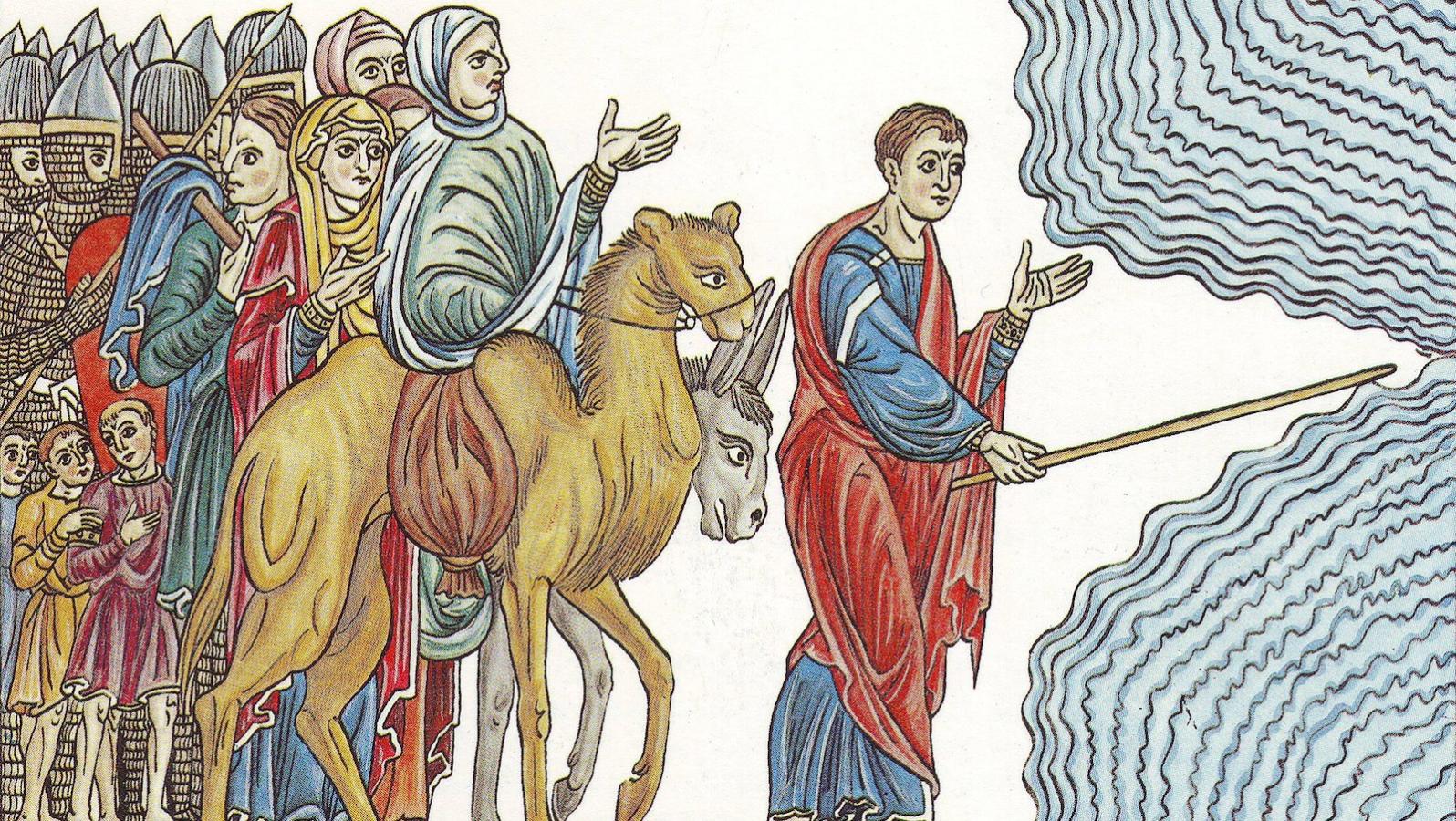The holiday of Purim is based on events as recounted in the Book of Esther. The Book of Esther, known as the Megillah (Hebrew for scroll) has one glaring “omission.” The name of God is never mentioned. The Jews’ salvation remembered on Purim is often referred to as the “Hidden Miracle,” hidden because no supernatural event was responsible, merely the combination of personal courage and good timing.
One chooses to be courageous, but timing often depends on factors beyond our control. We choose to exploit the opportunities when offered, but the opportunities present themselves. When timing works in our favor, we either call it “lucky” or “Providential,” depending on our worldview or our belief system. The “hidden miracle” of Purim sees the hand of God in the well-crafted natural events of the story. The Megillah says, “And the Jews were enlightened…”–enlightened to the fact that this salvation was not of their making alone.
The Passover Haggadah also has a glaring omission. Where is Moshe Rabbenu [Moses our teacher]? Moses is mentioned only once in the Haggadah. How can we have a recounting of the Exodus and virtually ignore the central character? What point is the Haggadah trying to make?
One answer lies in this question, “If God is hidden during Purim, why is Moses hidden during the Passover seder?” Purim encourages us to understand that there is no such thing as a self-made person. We all had partners who contributed to our lives. Even when no sea was split, no plagues given, so-called natural events have miraculous qualities.
With your help, My Jewish Learning can provide endless opportunities for learning, connection and discovery.
The story of the Exodus might lead one to believe that God had to rely on Moses to bring miracles into the world, that Moses was not entirely human. The seder reminds us that not only was God ultimately responsible for the redemption, God was entirely responsible. As the Haggadah says, “‘God took us out’, not by the hands of an angel, not by the hands of a messenger, but the Holy One in God’s full glory.”
Our historical origins were overtly miraculous and wonderful. Our ancestors witnessed the revealed Hand of signs and wonders. But remember: if the sea would have split and we wouldn’t have been there to cross, it would be a fluke of nature. What makes it truly miraculous is that it happens when you need it. The essence of what makes a miracle a miracle, the timing of it, was as necessary then as it is now.
Reprinted with permission from Hillel: The Foundation for Jewish Campus Life.
Haggadah
Pronounced: huh-GAH-duh or hah-gah-DAH, Origin: Hebrew, literally "telling" or "recounting." A Haggadah is a book that is used to tell the story of the Exodus at the Passover seder. There are many versions available ranging from very traditional to nontraditional, and you can also make your own.
megillah
Pronounced: muh-GILL-uh, Origin: Hebrew, meaning "scroll," it is usually used to refer to the scroll of Esther (Megillat Esther, also known as the Book of Esther), a book of the Bible traditionally read twice during the holiday of Purim. Slang: a long and tedious story or explanation.
Moshe
Pronounced: moe-SHEH, Origin: Hebrew, Moses, whom God chooses to lead the Jews out of Egypt.
Pesach
Pronounced: PAY-sakh, also PEH-sakh. Origin: Hebrew, the holiday of Passover.
Purim
Pronounced: PUR-im, the Feast of Lots, Origin: Hebrew, a joyous holiday that recounts the saving of the Jews from a threatened massacre during the Persian period.
seder
Pronounced: SAY-der, Origin: Hebrew, literally "order"; usually used to describe the ceremonial meal and telling of the Passover story on the first two nights of Passover. (In Israel, Jews have a seder only on the first night of Passover.)



